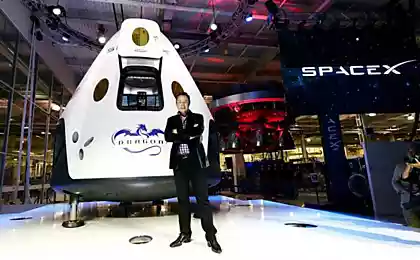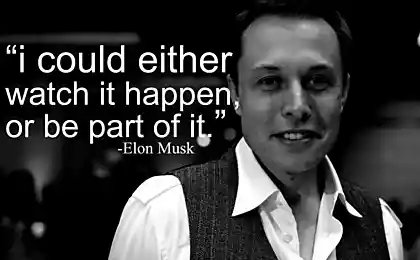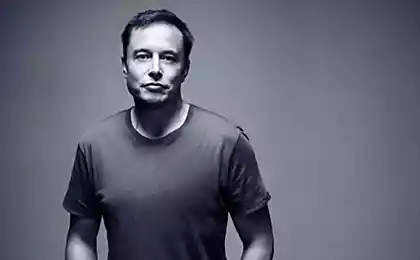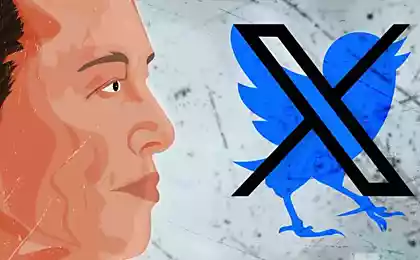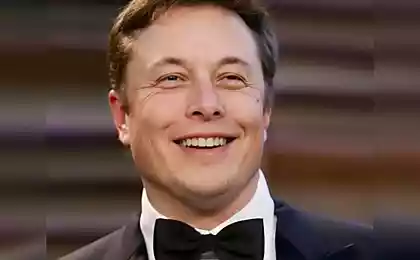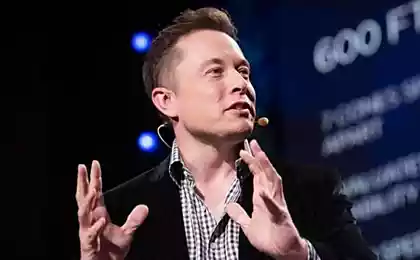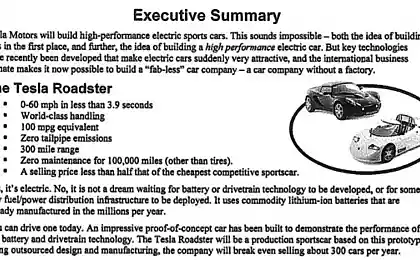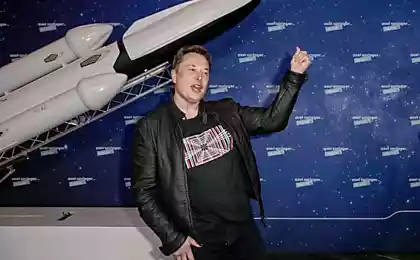237
12 things I learned from Elon Musk

Elon Musk is a figure that is hard to ignore in today’s world: entrepreneur, engineer, mastermind, and even “meme mogul.” He founded or led to the success of companies like PayPal, Tesla, SpaceX, and his ideas regularly shake up and break business models. Whether it's dreams of colonizing Mars or transforming the automotive industry, Musk manages to turn fiction into reality with enviable consistency. But what is the secret of his thinking and work? Is it possible to learn something from such an outrageous and unconventional leader, even if you are not an engineer or a high-tech businessman?
In this article, I’ll share 12 Lessons inspired by Elon Musk’s life and practice. Without pretending to be “truth in the last resort,” I will try to show what values and approaches help him not only to generate ambitious ideas, but also to implement them. The text is aimed at a wide audience who want to expand the boundaries of their own thinking and understand how the principles of the Mask can be partially applied in any business - from working on personal projects to self-realization in everyday life.
It is based on the synthesis of public speeches by Elon Musk, his interviews, as well as the analysis of a number of psychological studies on the behavior of innovative leaders and the principles of effective entrepreneurship. Important condition: approach these lessons meaningfully without turning them into dogma. Elon Musk embodies only one of the possible formulas of success, but definitely deserves attention for his unconventional decisions and perseverance.
Main part
1. Dream "on the edge" of the real
Musk is known for his ability to aim for projects that seem fantastic: sending people to Mars, creating “smart” transport, laying tunnels under megacities. But the interest is that he does not dream about things that are absolutely beyond and impossible – all these areas are theoretically feasible from the standpoint of science, although they require breakthrough technologies.
- How to apply: Take the risk of setting yourself tasks that seem a little more than your current capabilities, but not entirely out of the realm of fiction.
- Example: Instead of “just getting a little better,” put “launch a product that will change the lives of thousands of people.” Yes, it's bold, but it's those goals that spark enthusiasm.
2. Learn the basics personally, not just through “experts”
One of Musk’s secrets is his deep involvement with engineering details and scientific principles. He's not afraid to pick up physics and math textbooks to understand how a rocket engine or battery works. This allows them to set real goals and identify areas for innovation.
- Conclusion: Don’t just rely on other people’s reports and resumes. Try to get to the primary sources of knowledge.
- Benefits: Those who understand the basic principles are able to find non-standard solutions faster, because they are not limited to other people’s interpretations.

3. Don’t be afraid to criticize yourself and break old paradigms.
According to Musk, one of the key factors of success is the constant “questioning” of yourself: where am I wrong? The ability to apply “first principles thinking” helps to get rid of outdated ideas and look at the problem with a fresh look.
- Practice: Ask yourself why you’re doing something this way, whether there’s a “past legacy” that has long since run out of relevance.
- Plus: Critical attitude to established methods gives the ground for modernization and creativity.
4. Take Risk as Part of the Way
As analysts say, Musk is not afraid to risk reputation, finances, even comfort, for the sake of great goals. Recall Tesla: the project did not immediately become profitable, long seemed on the verge of failure, but the founder continued to invest personal funds, believing in the idea of electric vehicles.
- Science: Many studies confirm that the ability to take risks constructively is one of the traits that distinguish successful innovators from “cautious” colleagues.
- Personal gain: It's not about crazy adventurism, it's about common sense: "I'm prepared for possible losses, but the potential is so great it's worth it."
5. Be prepared for long and hard work.
The image of the “genius inventor” is often forgotten about the enormous labor costs. Musk is known for his frantic schedule, long working hours and maximum involvement in projects. He doesn’t just “delegate,” he literally lives at work.
- Reality: Any great success takes time and energy. There are almost no “quick” successes, this is an illusion propagated by frivolous gurus.
- Conclusion: Appreciate your time, prioritize, but understand that serious results require hard work.

6. Set global goals that inspire
Musk’s strategy includes super-ambitious goals: colonize Mars (SpaceX), make the transport revolution (Tesla), create ultra-high-speed tunnels (The Boring Company). These goals are so high-profile that they attract talent, investment and create massive public attention.
- Principle: Choose tasks that are meaningful not only to you, but also to a wider range of people. It gives you extra meaning and energy.
- Warning: However, make sure that you really believe in the greatness of this goal, otherwise you may lose motivation at the first difficulties.
7. Learn from failures and don’t be afraid of public condemnation
SpaceX had rockets that exploded on landing, Tesla had multiyear losses, PayPal had legal problems at launch. However, these “mistakes” have become a platform for progress. Musk didn’t try to hide the failures, he publicly acknowledged them and kept going.
- Moral: Failure is not a sentence, but part of the road to success. If a public fiasco causes you to drop everything, you lose your chance for further growth.
- Council: Watch people who have reached heights talk about their failures. As a rule, they remember them without shame, but as a valuable lesson.
8. Appreciate speed in decision making
Musk is known for moving quickly to experiments, quickly adjusting the course. This “iterative” approach means it’s better to make the “first version” than to plan endlessly. “Do, test, change” is the key to the accelerated evolution of products and ideas.
- Practice: Instead of thinking long, try releasing a “minimum viable product,” getting feedback, and reworking.
- Advantages: You become more aware of mistakes, save time on unnecessary hypotheses.
9. Bet on “mission”, not on simple earnings
Mission-inspired people will walk with you through hardships, and customers will be loyal because they see a higher purpose than the banal pursuit of profit. In Musk’s case, this mission is to move humanity toward greener energy, life on other planets, and innovation in transportation.
- Essence: Mission provides unifying meaning and destructures familiar boundaries, helping to attract and retain people.
- Important: Ask yourself, “Why do I do what I do?” What does it matter to the world?
10. See competition as an incentive to improve
Musk is not afraid to compete with major automakers, aerospace giants and other tech corporations. He understands that competition drives innovation and improves product quality.
- Lesson: Instead of fearing competitors, it is to see their existence as a challenge to become better, to stop resting on your laurels and to look for new ways.
- Result: You develop a culture of continuous improvement that helps you maintain leadership.
11. Don’t be afraid to cause negativity if it’s for progress.
Musk has repeatedly faced criticism for "too risky" policies, harsh remarks and unorthodox management practices. However, he continued to act, believing in the prospects. For him, the ultimate goal is more important than the desire to please everyone.
- Key point: Innovative ideas are almost always resisted, so comfort and “general praise” can be the enemies of true breakthrough.
- How to apply: If you see opportunities to develop the project, but are afraid of “what they will say”, remember that there are no major achievements without a share of negativity towards the initiator.

12. Look beyond your temporary failures and image blows
Musk is an example of a person who has often been “hit” by reputation: scandals in the press, ambiguous tweets, dubious promises. But he continues to focus on bigger prospects. Short storms do not knock him off the global course.
- Logic: If you are confident in your mission, temporary negative information should not be confusing.
- Exercise: Every time you encounter a failed post or a critical article about yourself, ask, “Does this matter in a 5-year perspective?”
Conclusion
12 Things I Learned from Elon Musk is a subjective set, of course. Someone will find other lessons in Mask and his projects, while someone, on the contrary, sees in him a controversial personality. But regardless of attitude, it’s hard to deny that his methods and worldview have shaped an array of innovative practices in business and science.
In short, Musk teaches us to leap boldly out of the box, to delve deeper into technology or problems, not to be afraid of mistakes and public condemnation, to trust global dreams and, most importantly, to work hard to realize them. All of this is backed up by a sincere desire for a mission: “How can we make the world (and possibly other planets) a better place?”
For many of us, this approach may seem too extreme. But even a small fraction of his ideas, transferred to our lives, can significantly expand the boundaries of the possible. You don’t have to strive to build a rocket or a city on Mars, but you can at least realize that the basis of any major achievement is self-belief, risk-taking, learning and the ability to look at situations with fresh eyes. And that's exactly what Musk is demonstrating day by day.


